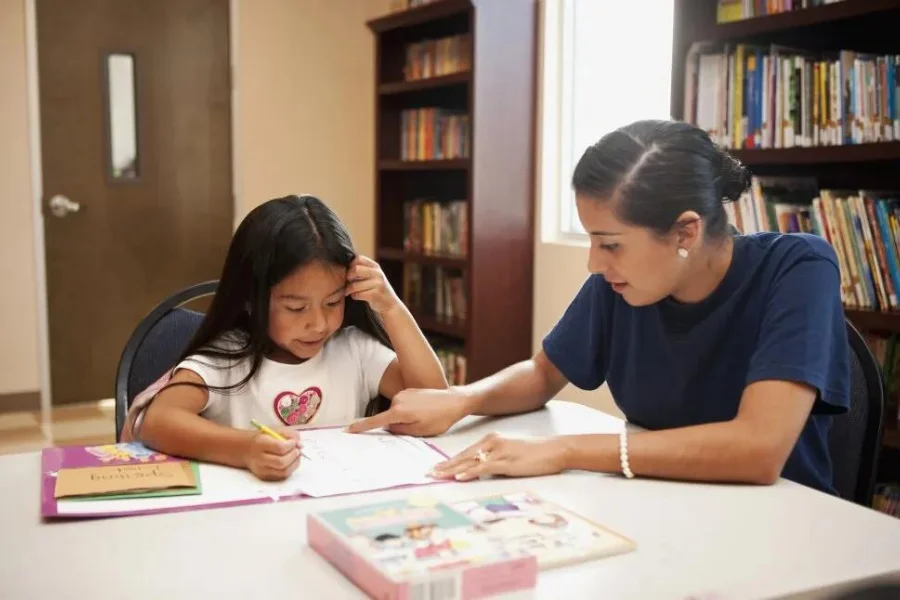What are Dysgraphia Symptoms?
Source: photos.demandstudios
What are Dysgraphia Symptoms?
Learning condition that disturbs writing knowledge is known as Dysgraphia. It can be marked through many symptoms, affecting a person’s ability to write successfully. One common indicator of dysgraphia is difficulty with letter formation and legibility; letters might be unclear or appear jumbled. Moreover, people may struggle with maintaining constant letter size and spacing, which can make written text hard to read.
Dysgraphia symptoms also include problems with spelling and fine motor coordination, mostly making the physical act of writing both slow and difficult. Those with dysgraphia may find it tough to write in a straight line or control a writing tool properly, further making it difficult for the writing process. Some may write letters in reverse or have trouble recalling how letters are formed. It’s also not unusual for them to be uncertain about when to use upper or lower case letters.
These dysgraphia symptoms extend to grammar and composition difficulties, such as forming sentences with correct grammar and punctuation, omitting words, or placing them in an incorrect order. Mistakes with verb tenses and pronouns are additional signs that writing tasks are a challenge due to dysgraphia.
For more details of Best Learning Disability Course, Call / Whatsapp on +919321024137 / +919869866277.
For downloading Best Learning Disability Course brochure, Click Here!
Table of Content
What are Different Dysgraphia Types?
Learning condition that disturbs writing knowledge is known as Dysgraphia. It can be marked as problems with spelling, handwriting, and shaping ideas. Knowing the different Dysgraphia Types is important for parents, teachers, and therapists to successfully support people facing these difficulties.
Here, we discover the main types of dysgraphia:
Dyslexic Dysgraphia:
- Symptoms: Poor spelling and handwriting are prominent, but copied work is relatively good.
- Details: This type arises from dyslexia, where individuals have impairments in reading that also affect their writing.
Motor Dysgraphia:
- Symptoms: The person has poor muscle tone, uncontrolled or fine motor skills affecting their writing.
- Details: Writing is usually laborious, and letters may be poorly formed. It stems from inadequate or delayed motor skills development.
Spatial Dysgraphia:
- Symptoms: Problems with spatial orientation manifest in disorganized written work.
- Details: Individuals struggle to understand spacing and the physical boundaries of the writing space.
Phonological Dysgraphia:
- Symptoms: Difficulty transferring phonetic knowledge into written words.
- Details: Individuals often misspell words and have trouble writing phonetically accurate words.
Lexical Dysgraphia:
- Symptoms: Difficulties in writing previously learned words while having the ability to spell new words phonetically.
- Details: This type involves a disconnect between visual memory and spelling, making familiar word spelling particularly challenging.
When addressing Dysgraphia Types and their associated Dysgraphia Symptoms, tailored interventions can significantly help manage this condition. Recognizing the specific type of dysgraphia can lead to more effective strategies that cater to the unique needs of the individual. Awareness and appropriate educational support can improve the writing ability and overall academic performance of those with dysgraphia.
For more details of Best Learning Disability Course, Call / Whatsapp on +919321024137 / +919869866277.
For downloading Best Learning Disability Course brochure, Click Here!

Source: usnews
Why Testing for Dysgraphia Important?
Testing for Dysgraphia is important because it identifies specific challenges a child may face in writing, enabling tailored support and interventions.
Early detection through testing can assess various elements such as:
The Mechanics of Writing:
This includes essential skills like grammar, spelling, and punctuation. Identifying issues in these areas is crucial for early intervention.
Thematic:
Testing for Dysgraphia evaluates a child’s ability to use words effectively and organize a narrative, which are vital for effective communication.
Fine Motor Skills:
These tests regulate a child’s skill to control small muscle movements, which can affect their writing ability.
Once dysgraphia is known, exact interventions can be applied to help children in disabling their writing problems.
Some effective interventions include:
- Pencil Grips and Erasable Pens: These tools help improve handwriting comfort and correctness.
- Paper with Raised Lines: This provides tactile feedback that can guide handwriting.
- Graph Paper: Helps in aligning math problems and maintaining straight lines of text.
- Adapting Test Formats: For example, allowing students to circle answers to reduce the amount of writing required.
- Grading Adjustments: Evaluating based on knowledge rather than handwriting or spelling quality.
Testing for Dysgraphia is necessary because without it, children may not receive the needed support, possibly affecting their academic and psychological growth. Early testing and intervention pave the way for better learning tactics and a more positive educational experience, making the procedure of Testing for Dysgraphia important for children showing dysgraphia symptoms.
For more details of Best Learning Disability Course, Call / Whatsapp on +919321024137 / +919869866277.
For downloading Best Learning Disability Course brochure, Click Here!
Who Provides Certificate Course in Learning Disability India?
Vidhyanidhi Education Society (Govt. regd.) provides a famous Certificate Course in Learning Disability in India that is designed to motivate teachers, parents, and professionals with the needed knowledge to support children with learning disabilities. This course is not limited to members in India; it is also provided to international students, reflecting a broad and inclusive approach to education.

Source: gstatic
Understanding Children with Special Needs
This initial module of the Certificate Course in Learning Disability in India familiarizes members to the diverse range of special needs education. It emphasizes on identifying the unique challenges and strengths of children with special needs, highlighting the importance of empathetic and personalized educational tactics.
Learning Disabilities: Characteristics, Symptoms, and Types
An important factor of the course, this part jump deep into the details of different learning disabilities, involving dyslexia, dyscalculia, and dysgraphia. Members learn to classify key dysgraphia symptoms, which include bad handwriting, trouble with writing consistency, and problems in forming thoughts on paper. Considering these symptoms is necessary for early intervention and effective support.
Assessment and Interventions
The Certificate Course in Learning Disability in India provides students with the abilities to assess learning disabilities exactly using various tools and techniques. This module covers the design and application of effective interventions that supply to individual learning needs, making sure that each child can achieve their maximum capacity.
Inclusive Education
Promoting an inclusive educational environment is a main attention of the course. This part teaches tactics for including children with learning disabilities into normal classrooms, developing an atmosphere of acceptance and care. It underlines how inclusive practices can profit all students, not just those with special needs.
Throughout the Certificate Course in Learning Disability in India, an important emphasis is placed on knowing and directing dysgraphia symptoms, making sure that members can know and get involved successfully to support students facing these problems. This complete approach trains teachers and professionals to make an important difference in the lives of children with learning disabilities.
Join Vidhyanidhi’s Best Learning Disability Course to conquer dysgraphia now!
For more details of Best Learning Disability Course, Call / Whatsapp on +919321024137 / +919869866277.
For downloading Best Learning Disability Course brochure, Click Here!
FAQs
At what age is Dysgraphia Diagnosed?
Dysgraphia is normally diagnosed in children around the age of 7 or 8 when writing skills are more settled.
Is there a Specific Test for Dysgraphia?
There isn't a specific test for dysgraphia; it's known through a series of writing and cognitive assessments by experts.
What is another name for a Resource Teacher?
Another name for a Resource Teacher is a Special Education Teacher, focusing on assisting students with various learning needs.





